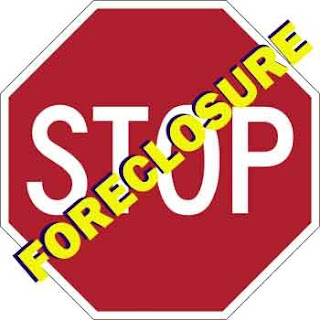Usually the rule is to hold your "bad" news for a Friday afternoon release, meaning fewer people hear about it and even fewer read about it in the paper on Saturday. (What's a newspaper?)
A getaway day like this Friday? Any news coming out must be awful.

Not so in D.C., though. The feds are talking about…
Usually the rule is to hold your "bad" news for a Friday afternoon release, meaning fewer people hear about it and even fewer read about it in the paper on Saturday. (What's a newspaper?)
A getaway day like this Friday? Any news coming out must be awful.
Not so in D.C., though. The feds are talking about yet another foreclosure-prevention program. It's a revision to the last plan that didn't work well enough.
One rave review comes from Moody's analyst Mark Zandi:
"This is very exciting," says Mark Zandi, chief economist of Moody's Analytics. "I think it has the potential to be a game changer, to really bring a quicker end to this foreclosure crisis that is engulfing the housing market and the economy. I'm very encouraged."
"I think this could mark the end of the housing crash, yes," he says. "We've been in a long slide for four long, painful years, and this could mark the definitive end of that."
A "game changer." The "definitive end" of the "housing crash." Big claims.
So what do the feds propose to do? (See NY Times story.) The top changes:
- Encourage more loan mods and principal writedowns for "underwater" homeowners.
- Allow refis into FHA-backed loans for "underwater" cases.
- Pay 2nd lienholders more to release their claims and allow modifications/short sales on 1st TDs.
- Reduce mortgage payment requirements for people while unemployed (3-6 months).
All the changes will cost money – perhaps $50 billion. (Some argue that involving the FHA could make this program a very big blank check if it doesn't succeed in arresting foreclosures.) But that $50 billion is not "new money." That's TARP money that was already approved, spent, even reimbursed. It's like a free-floating pool of cash for whatever the issue of the day may be.
The overarching theory behind foreclosure-prevention efforts is that foreclosures reduce home prices, and that hobbles an economic recovery.
People losing their homes is a tragedy in its own right, but the reason the feds care is that lower home prices – and the cycle of more foreclosures that lower prices ignites – reduce the value of all those mysterious toxic assets that are hovering like a dark cloud someplace, threatening the financial system and the economy with a new wallop if they ever come back to the fore. Thus, by keeping people in their homes by almost any means available, we prop up the economy and set the stage for a full recovery, after which maybe someone can look at those toxic assets a little closer.
It's an interesting idea – trying to preserve artificially high home prices to protect against some unknowable worst-case scenario from coming to pass... like the beginning of a "W-shaped" recession that no one wants, especially in an election year.
To date there hasn't been much good to come out of this administration's foreclosure reduction plans, nor the previous administration's. But there's a lot of hope attached. Might this be the "definitive end," this time?
Please see our blog disclaimer.
Listings presented above are supplied via the MLS and are brokered by a variety of agents and firms, not Dave Fratello or Edge Real Estate Agency, unless so stated with the listing. Images and links to properties above lead to a full MLS display of information, including home details, lot size, all photos, and listing broker and agent information and contact information.
Based on information from California Regional Multiple Listing Service, Inc. as of July 27th, 2024 at 7:45am PDT. This information is for your personal, non-commercial use and may not be used for any purpose other than to identify prospective properties you may be interested in purchasing. Display of MLS data is usually deemed reliable but is NOT guaranteed accurate by the MLS. Buyers are responsible for verifying the accuracy of all information and should investigate the data themselves or retain appropriate professionals. Information from sources other than the Listing Agent may have been included in the MLS data. Unless otherwise specified in writing, Broker/Agent has not and will not verify any information obtained from other sources. The Broker/Agent providing the information contained herein may or may not have been the Listing and/or Selling Agent.


